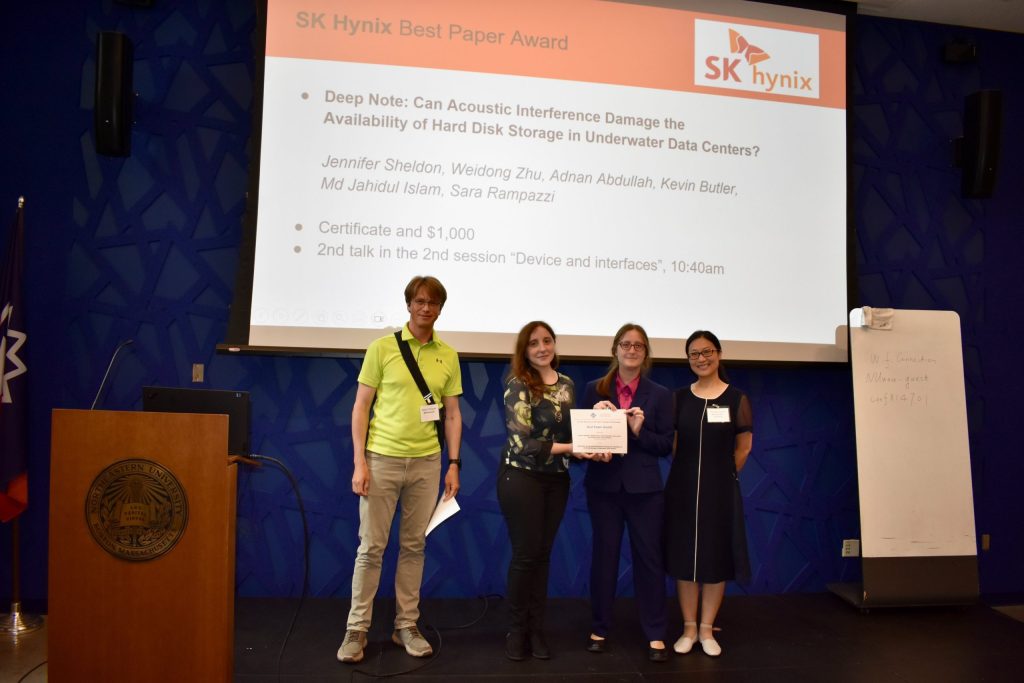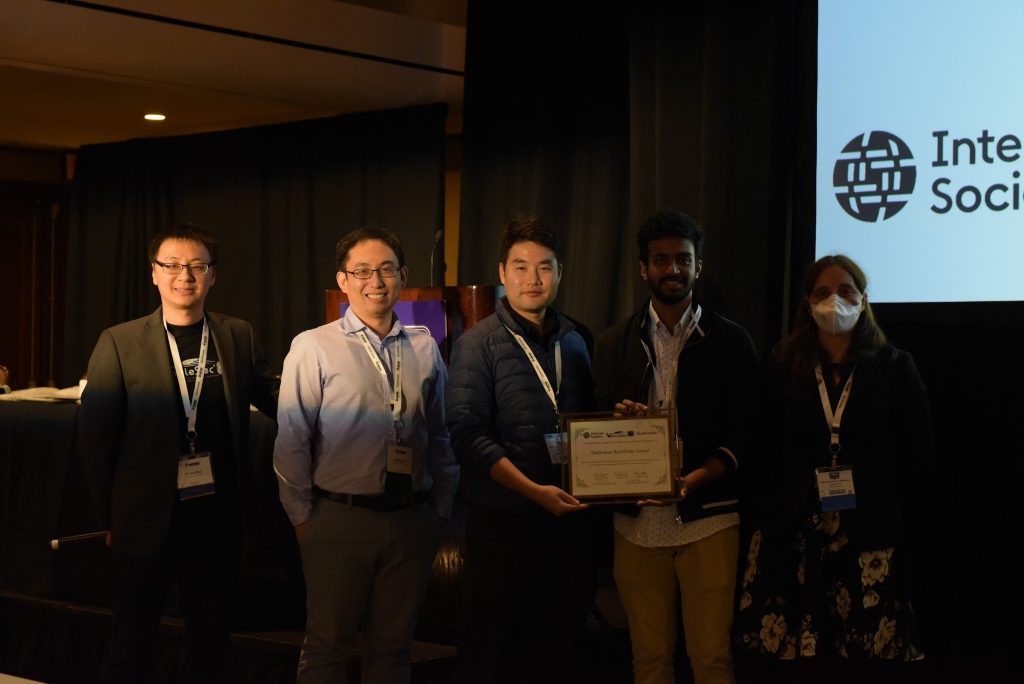Category: In The Press

DR RAMPAZZI AND TEAM WIN BEST PAPER AT HOTSTORAGE 2023.
July 19, 2023Congratulations to Dr. Sara Rampazzi and her team composed of lead author Jennifer Sheldon, Weidong Zhu, Dr. Md Jahidul Islam, and FICS Research Director Dr. Kevin Butler, on winning Best Paper at HotStorage 2023 conference for the paper entitled “Deep Note: Can Acoustic Interference Damage the Availability of Hard Disk Storage in Underwater Data Centers?”
Read more »
HOW A HORSE WHISPERER CAN HELP ENGINEERS BUILD BETTER ROBOTS
May 10, 2023Dr. Eakta Jain’s research on the human/horse interaction asks if this can teach us something about building robots designed to improve our lives. She states “There are no fundamental guiding principles for how to build an effective working relationship between robots and humans, as we work to improve how humans interact with autonomous vehicles and […]
Read more »
DR SARA RAMPAZZI AND PHD STUDENT SRI HRUSHHIKESH VARMA BHUPATHIRAJU WIN MULTIPLE AWARDS AT THE INAUGURAL SYMPOSIUM ON VEHICLE SECURITY AND PRIVACY.
April 21, 2023Congratulations to both Dr. Rampazzi and her Ph.D student Sri Hrushikesh Varma Bhupathiraju for wining two awards for their work-in-progress (WIP) paper, titled: “WIP: Infrared Laser Reflection Attack Against Traffic Sign Recognition Systems”. These awards include: The ETAS best short/WIP Paper award and the Qualcomm Best Demo Award at the Inaugural Symposium on Vehicle Security […]
Read more »
FICS RESEARCH PROFESSOR PATRICK TRAYNOR AND PH.D STUDENT LOGAN BLUE RESEARCH ON DEEPFAKE AUDIO
October 10, 2022Imagine the following scenario. A phone rings. An office worker answers it and hears his boss, in a panic, tell him that she forgot to transfer money to the new contractor before she left for the day and needs him to do it. She gives him the wire transfer information, and with the money transferred, […]
Read more »Prof. Forte wins ECASE – Army Award
April 10, 2019Professor Domenic Forte was recently notified that he will be receiving the Army Research Office’s prestigious Early Career Award for Scientists and Engineers (ECASE). He was originally nominated for this honor in 2017 by the Office’s Information and Software Assurance Program Officer and Division Chief of the Computing Sciences Program, Dr. Cliff Wang, for his […]
Read more »Invasion of the Hardware Snatchers: Cloned Electronics Pollute the Market
April 26, 2017Fake hardware could open the door to malicious malware and critical failures.
Read more »Biometric Security: Your Body as Your Password
January 4, 2017In Biometric Security: Your Body as Your Password, Prof. Damon Woodard shares his thoughts on consumer concerns and the adaptability of biometric security features on mobile devices and how researchers and engineers can mitigate their concerns with improved design.
Read more »Prof. Mark Tehranipoor on Pensacola News Journal
November 29, 2016Prof. Mark Tehranipoor on Pensacola News Journal shares his thoughts about the proliferation of consumer-friendly internet accessible devices and the safety and privacy risk issues now inherent in them, along with tips on how to employ “good cyber-hygiene practices”.
Read more »Prof. Patrick Traynor on Washington Journal: Cyberterrorism and Internet Threats
November 18, 2015On November 17, 2015, Prof. Patrick Traynor participated in the Washington Journal’s “Sunshine State Tour” series and talked about the development of cybersecurity infrastructure, current cybersecurity challenges, and what government and the private sector can do to combat threats. He spoke from the C-SPAN 2016 Campaign Bus, parked at the University of Florida in Gainesville. Source: http://www.c-span.org/video/?400479-5/washington-journal-patrick-traynor-internet-security
Read more »WSJ Article: Researchers Find Security Flaws in Developing-World Money Apps
August 30, 2015Mobile-money services are growing at a rapid clip in the developing world, but new research suggests many of the apps that give the poor access to banking services have woeful security protections, leaving users exposed to fraud and theft. Computer scientists at the University of Florida studied seven mobile-money apps from Brazil, India, Indonesia, Thailand […]
Read more »